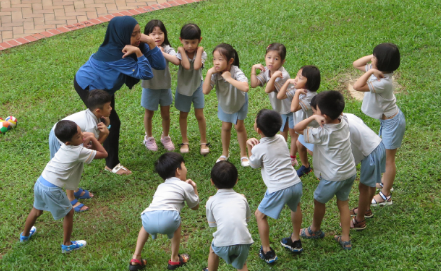
In today’s digital age, where screens often dominate children’s lives, outdoor learning offers a refreshing and vital contrast. Beyond the four walls of a classroom, nature provides an expansive and dynamic environment where kids can explore, learn, and grow in ways that traditional indoor settings may not fully facilitate. The benefits of outdoor learning for kids are immense, impacting their physical health, mental well-being, academic performance, and social skills.
1. Enhanced Physical Health
Outdoor learning encourages physical activity, which is essential for children’s overall health. Running, climbing, and playing in natural settings help develop gross motor skills, strengthen muscles, and improve cardiovascular health. Activities like hiking or nature walks also foster endurance and flexibility, promoting a healthy lifestyle from an early age.
2. Boosted Mental Well-Being
Spending time in nature has been shown to reduce stress, anxiety, and depression in both children and adults. The natural environment helps to calm the mind, improve mood, and enhance focus. For kids, outdoor learning can provide a much-needed break from the pressures of academic life, allowing them to recharge and return to their studies with renewed energy and concentration.
3. Improved Academic Performance
Research indicates that outdoor learning can positively impact academic outcomes. By taking lessons outside, children can engage in hands-on, experiential learning that makes abstract concepts more tangible. For instance, a lesson on ecosystems becomes far more engaging when students can observe insects, plants, and animals in their natural habitats. This type of learning fosters curiosity and critical thinking, leading to better retention and understanding of the material.
4. Social Skills Development
Outdoor learning often involves group activities that require collaboration, communication, and teamwork. Whether it’s building a shelter, working on a gardening project, or participating in a nature scavenger hunt, these experiences help children develop essential social skills. They learn how to cooperate, solve problems together, and respect different perspectives, all of which are crucial for their personal and social development.
5. Fostering a Connection with Nature
In an increasingly urbanized world, many children have limited opportunities to connect with nature. Outdoor learning helps bridge this gap by immersing kids in the natural world, fostering an appreciation for the environment and a desire to protect it. This connection with nature is critical for developing environmental stewardship and a sense of responsibility towards the planet.
6. Encourages Creativity and Imagination
Nature is an ever-changing, unpredictable environment that stimulates the imagination. Without the constraints of structured indoor activities, children can explore, experiment, and create their own games. This unstructured play is vital for developing creativity, problem-solving abilities, and innovative thinking skills that are invaluable in both academic and life contexts.
7. Hands-On Learning Experiences
Outdoor learning provides numerous opportunities for hands-on, experiential learning. Kids can directly observe natural phenomena, conduct experiments, and engage in real-world problem-solving. Whether it’s measuring the height of a tree using shadows, identifying different species of plants, or understanding the water cycle through observation, these activities help solidify concepts that might otherwise seem abstract in a traditional classroom setting.
8. Builds Resilience and Independence
Outdoor environments are less predictable and controlled than indoor settings, which helps children develop resilience. They learn to navigate challenges, adapt to changing conditions, and overcome obstacles, which builds confidence and independence. These experiences are crucial for personal growth and can help children develop a “can-do” attitude that carries over into other areas of their lives.
9. Promotes Sensory Development
Nature engages all five senses, sight, sound, touch, taste, and smell, in ways that indoor environments rarely do. The variety of sensory experiences available in the outdoors helps children develop their sensory processing skills, which are crucial for learning and development. From the sound of birds chirping to the texture of leaves, these sensory inputs enrich children’s understanding of the world around them.
10. Cultivates a Lifelong Love of Learning
Outdoor learning is inherently engaging and enjoyable, which helps foster a lifelong love of learning. When children associate learning with fun and discovery, they are more likely to become curious, self-motivated learners. This positive attitude towards learning can have long-lasting effects, influencing their academic success and personal development well into adulthood.
Conclusion
Outdoor learning offers a wealth of benefits for children’s physical health, mental well-being, academic performance, social skills, and more. By integrating outdoor experiences into your child’s education, you’re not only helping them excel academically but also nurturing their overall development and well-being.
As parents and educators, it’s crucial to recognize the natural world’s value as a powerful learning tool. Whether through organized outdoor lessons or unstructured playtime in the backyard, encouraging kids to spend more time outside can have profound and lasting benefits.
If you’re passionate about enhancing your child’s learning experience, consider incorporating more outdoor activities into their routine. Let’s make learning an adventure together!








